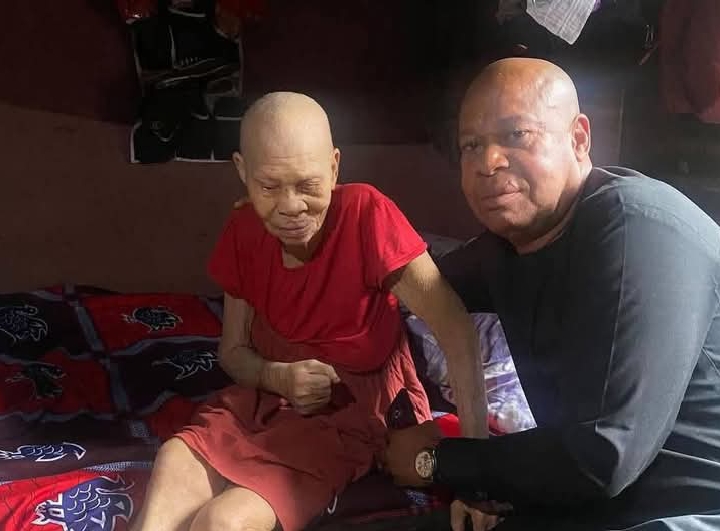Tears streamed as 48-year-old Ogbonna Igbojionu embraced his mother for the first time in 26 years, following his release from Kirikiri Maximum Security Prison, where he had been on death row since 1999 for “buying stolen generator.”
At the time of his arrest, Ogbonna was a 22-year-old trader from Abia State, taken into custody during a police raid and later convicted in a case that legal advocacy groups now call a severe miscarriage of justice.
According to court records, Ogbonna was charged with robbery after purchasing the generator from a third party, not knowing it had been stolen. Despite consistently asserting his innocence and having no prior criminal record, he was sentenced to death by hanging under a rigid military-era law that left little room for judicial discretion. Without access to effective legal representation or appeal mechanisms, he spent over two decades in solitary confinement, awaiting execution for a crime he did not knowingly commit.
His eventual release was made possible by the efforts of the African Centre for Justice and Human Rights (ACJHR), in partnership with the Lagos State Advisory Council on Prerogative of Mercy. A legal review conducted in April 2025 uncovered major flaws in his conviction, including insufficient evidence and the prosecution’s failure to prove intent.
Ogbonna’s ordeal gained national prominence after a viral campaign led by legal activist Uzoamaka Nwachukwu urged the Lagos State Government to reexamine the cases of over 1,200 inmates serving dubious sentences. This advocacy prompted Governor Babajide Sanwo-Olu to authorize a review panel, which eventually included Ogbonna among 37 inmates granted clemency in June 2025.
His homecoming in Abia State felt like a scene from a film. Locals lined the roads with palm fronds, drums reverberated through the air, and elderly women ululated as he approached his mother’s simple home. The reunion was both heartbreaking and uplifting as mother and son collapsed into each other’s arms, overcome with emotion. “I never stopped praying,” his mother said tearfully. “They took my son, but God gave him back.”
Ogbonna has since declared his intention to dedicate his life to advocating for prison reform and awareness of wrongful convictions. “There are many more like me still in there,” he said in an interview. “I’m not bitter, but I won’t be silent. If the system can ruin a man’s youth over a generator, then it needs fixing.”
Human rights organizations are now urging the government to provide compensation and conduct a nationwide review of wrongful death row convictions. Ogbonna’s case is being cited as a turning point, with growing public calls for accountability from those involved in the flawed prosecution and a swift review of death row cases dating back to the 1990s.


